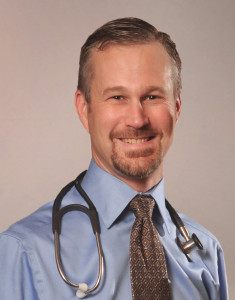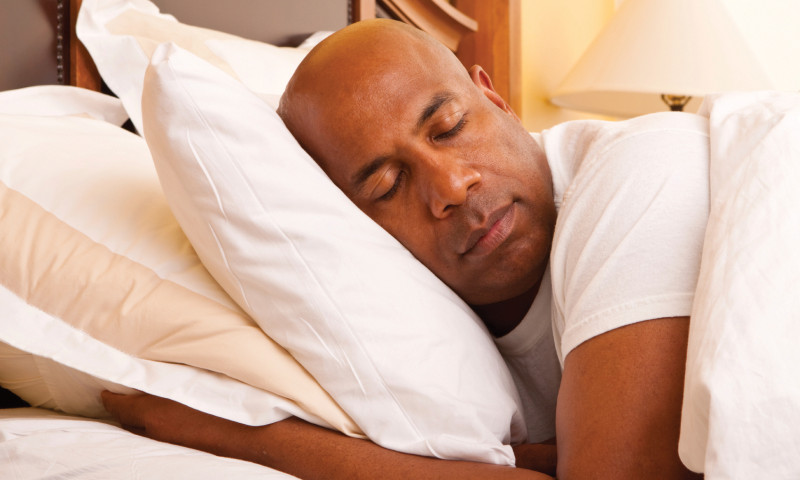Most of us have heard “diet and exercise is the way to lose weight…diet and exercise to lose weight” over and over again. It is the false mantra of dieters. To help you in your weight-loss plan, your real mantra should be: “sleep, diet and exercise is the real way to lose weight!”
The correct weight-loss method is the following: sleep first, diet second and exercise third. These are the basics, but there are many other parts to successful weight-loss. Even weight-loss itself is just a piece of the whole picture, which also includes weight maintenance, but the basic plan starts with sleep first, diet second and exercise third.
Several times a month, a new study comes out discussing the benefits of proper deep sleep. Good deep sleep helps three major things that we take for granted:
- First, deep sleep decreases our cortisol, a stress hormone secreted by an organ called the adrenal gland and located above the kidneys.
- Second, deep sleep helps regulate our hunger hormones to make us both less hungry and more full.
- Third, and most important, deep sleep increases our metabolism.
It has been recently estimated that the average American sleeps only about 5.5 to 6 hours a night. We stay up late watching TV, reading, sending emails or just surfing the internet. What we really need is to get 7-8 hours of sleep per night. When we sleep for at least 7 hours per night, we are less hungry, more full and have a better metabolism.
Proper Sleep Means We’ll Burn More Calories
According to the studies, when we start with a base of 7 hours of deep sleep, and then cut calories within our diet, we are less hungry in response to cutting out those calories. By adding exercise to our weight-loss plan and focusing on a baseline of 7 hours of deep sleep, we burn more calories and don’t just use exercise to counteract the decrease calories from short sleep.
For example, with 4 miles of walking or running each day, we burn about 400 calories. With a night of sleep that’s approximately 8.5 hours, by decreasing it to 5.5 hours a night, our body’s metabolism has been shown to decrease by the same 400 calories (on average). Therefore your walk of 4 miles just brings us back our baseline, and it will takes additional exercise to burn additional calories.
Weight-related Medical Conditions Can Also Affect Deep Sleep
There are several medical conditions that interfere with deep sleep. One is called sleep apnea. Sleep apnea is when you stop breathing in the middle of the night and your body wakes up to begin the breathing process again.
To diagnose sleep apnea, you can do a test that measures your breathing while sleeping. If you are waking up, even gently, for multiple times per hour, your body is not getting the true benefit of sleep.
Another related sleep condition is called restless leg syndrome. In restless leg syndrome, your legs and/or your arms move during the night, preventing the good deep sleep that your body needs. If you suspect you have a sleep problem that interferes with sleep or you are regularly very tired in the afternoon, please consult with your primary care or an obesity medicine physician to see what testing is right for you.
Here are some tips to help you get better sleep:
- Go to sleep and wake up at the same time of day as often as possible, 7 days a week.
- The bed should be for sleep, not for watching TV or for working.
- Your bedroom should be cave-like: dark, cool and quiet.
- Cut off consumption of caffeine by 2 p.m. each day so you’re not sitting in bed awake at night.
- Avoid alcohol. It helps you fall asleep, but the second half of the night is much less restful and instead filled with frequent awakening.
- Avoid bright light for 1.5 to 2 hours before bed, especially from a bright cell phone or computer screen.
- If you frequently lose track of time in the evening, set an alarm on your cell phone to remind you to go to bed on time.
About the Author:
 Craig Primack, MD, FACP, FAAP specializes in medical weight loss at the Scottsdale Weight Loss Center, with four locations in Arizona. He is certified by The American Board of Obesity Medicine, in addition to board certifications in Internal Medicine and in Pediatrics. Dr. Primack is vice-president of the Obesity Medicine Association. To learn more about Mr. Primack and the Scottsdale Weight Loss Center, please visit www.ScottsdaleWeightLoss.com.
Craig Primack, MD, FACP, FAAP specializes in medical weight loss at the Scottsdale Weight Loss Center, with four locations in Arizona. He is certified by The American Board of Obesity Medicine, in addition to board certifications in Internal Medicine and in Pediatrics. Dr. Primack is vice-president of the Obesity Medicine Association. To learn more about Mr. Primack and the Scottsdale Weight Loss Center, please visit www.ScottsdaleWeightLoss.com.





